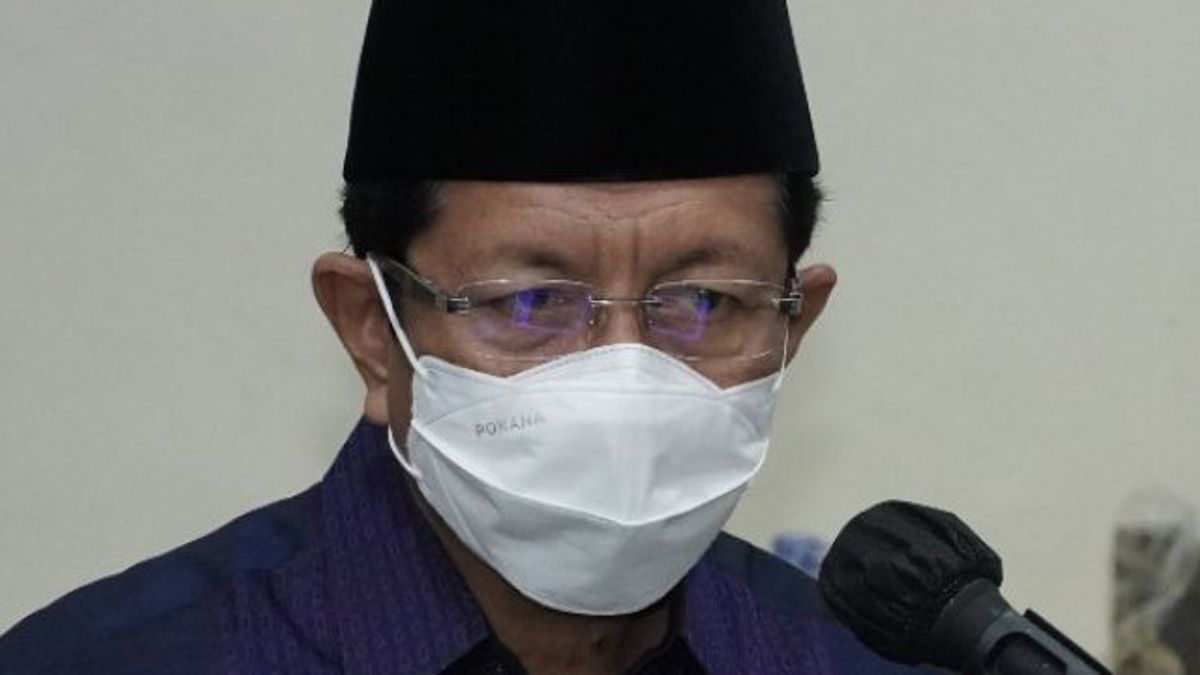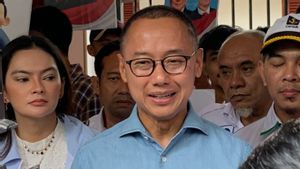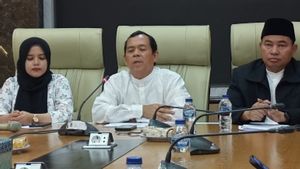JAKARTA - The Grand Imam of the Istiqlal Mosque in Jakarta, Nasaruddin Umar, acknowledged that the practice of spreading radicalism, intolerance and hatred in religious pulpits is real.
"First, I want to state that it exists, it is difficult to say that it does not exist. The problem is how to overcome it so that this does not continue to happen," said Nasaruddin in a statement received in Jakarta, Monday, July 4, quoted from Antara.
To overcome this, maximum and appropriate efforts are needed, because the rise of the nation's younger generation who fall into the trap of radical ideological narratives and terrorism is very dangerous for the sustainability of the nation and the existence of Pancasila as the nation's guideline.
"We need to approach them, as fathers and they are our children. Embrace them, pay attention so that their great energy is channeled, so that it is not used to divide the nation. Their energy should not be used to attack people, but to embrace people," he explained in information from the National Counterterrorism Agency (BNPT).
He assessed that the handling of victims and perpetrators of radical and intolerant narratives in the religious space must be seen as internal and external factors that affect vulnerability. Maybe they did that because of their religious knowledge and other historical factors, he said.
Second, he added that efforts are needed to limit the space for radical groups who use religious pulpits to spread radical, extreme, and intolerant ideas. According to him, this is important so as not to spread the virus that will bring disaster for the sustainability and unity of the nation.
"The next approach is that we limit their movement so that later it won't be like a virus, which actually brings disaster everywhere. So it must be localized, our security forces have to give warnings, if they attack, they must be fought," he said.
He revealed that radical groups often distort narratives that lead to public opinion, as if the government has carried out Islamophobic practices.
"Islamophobia is a group that does not want Islam and Muslims to develop, there is no such thing in Indonesia. We even have the Ministry of Religion and other institutions that regulate and support the course of religious life in Indonesia. At this time, Islamophobia, I don't think is appropriate," said the former deputy. the minister of religion.
He also assessed that it was related to the individual's perspective on a problem, so that the Government was obliged to carry out its state duties to maintain the integrity of the Unitary State of the Republic of Indonesia (NKRI). Appeals and findings of the apparatus related to radicalism and inappropriate handling efforts are said to be Islamophobia.
"Therefore, I think it is important for someone to have a comprehensive understanding of religion, to strengthen the creed so that they are not easily provoked and provoked," he said.
He considered that the Government's efforts so far should be appreciated, especially since recently people have been able to enjoy a safe and peaceful life from criminal acts of terrorism.
"For years, we have enjoyed a safe and peaceful life, it's because there is a system that works, it's not something that just happens," he said.
He hopes that all religious and community leaders can equip people and their followers so that they are not easily influenced by radical understanding and terrorism and put forward comprehensive religious knowledge.
"Don't let it be because of subjective problems that we get angry and hate. So we must prioritize objectivity, that's the Prophet's way," he said.
The English, Chinese, Japanese, Arabic, and French versions are automatically generated by the AI. So there may still be inaccuracies in translating, please always see Indonesian as our main language. (system supported by DigitalSiber.id)








